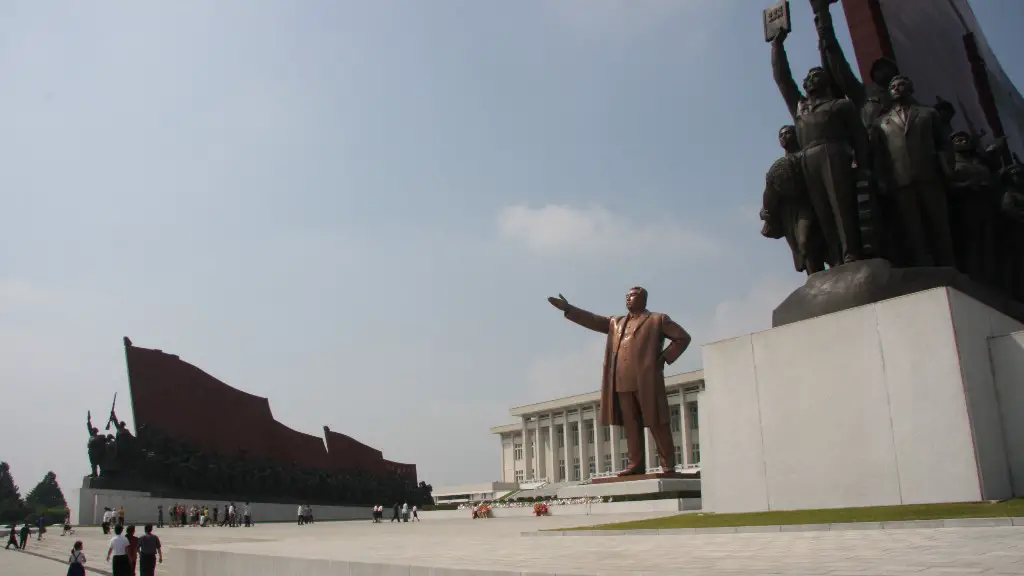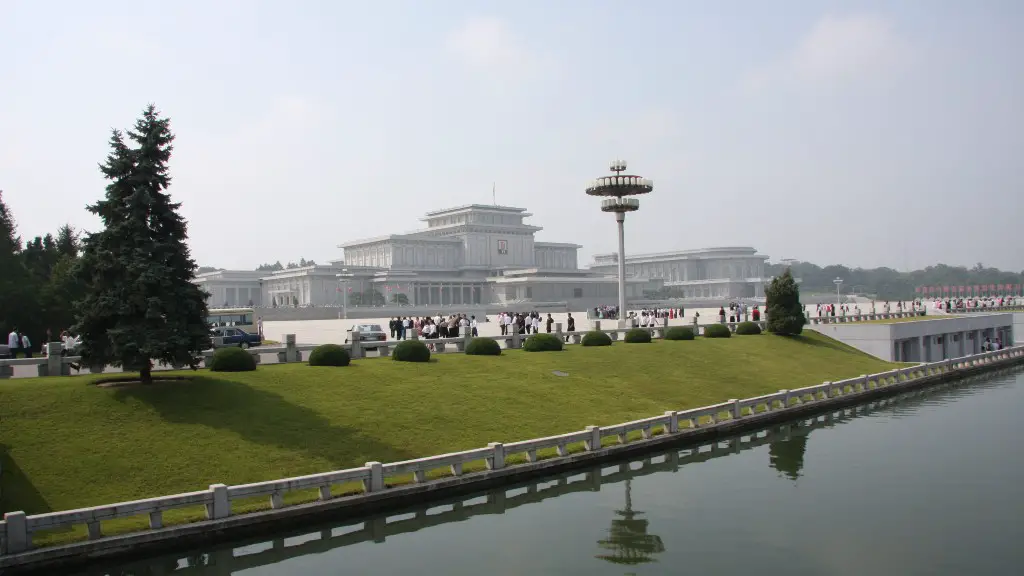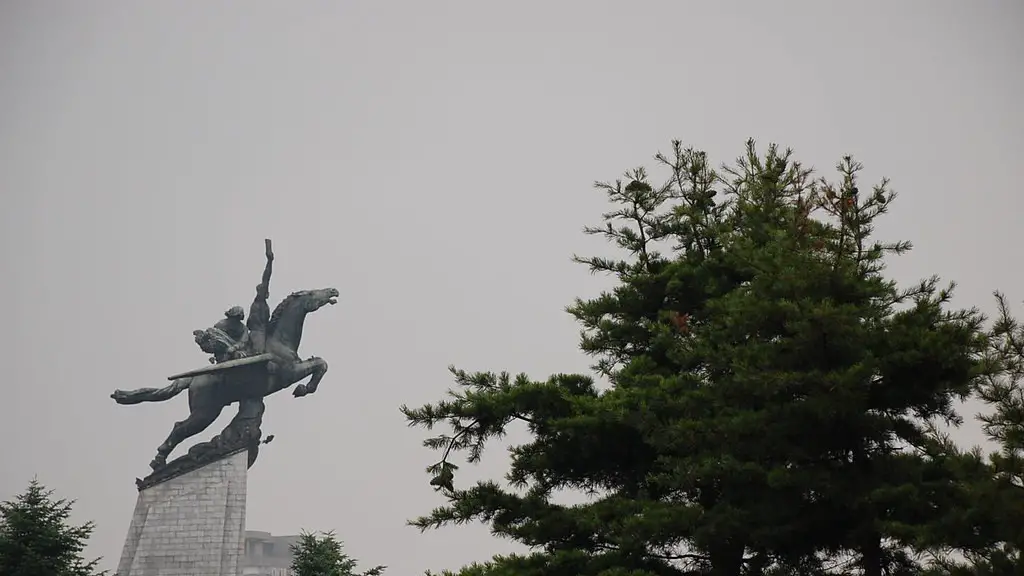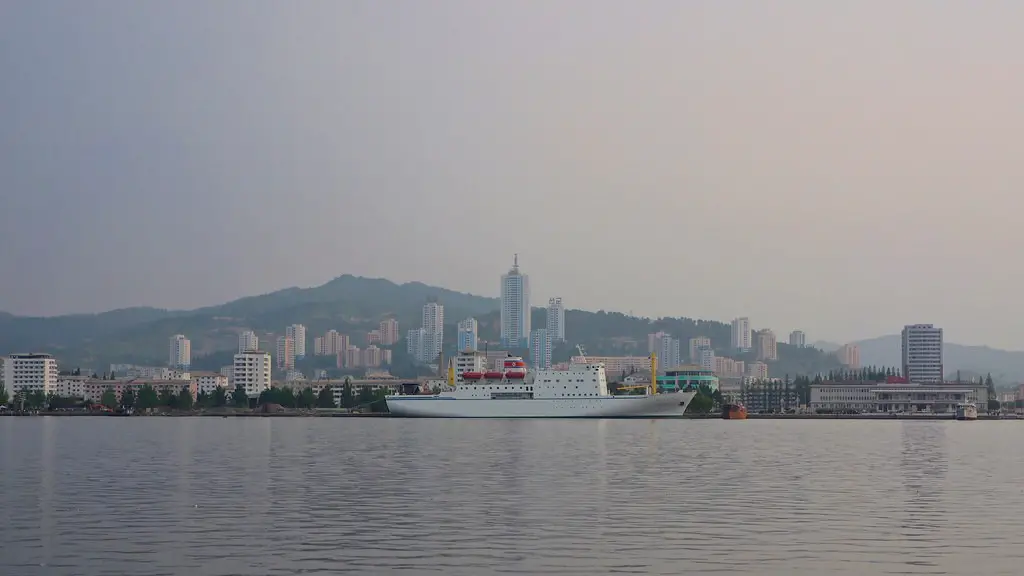Dictatorial Leadership
North Korea has a leadership style which is described as autocratic. This is only possible due to the non-democratic system in which the citizens have no say in the government. The state is closely controlled by the ruling family and their advisors. North Korea is considered to be a one-party state and their leaders Kim Jong-un and his father Kim Jong-il have had a great influence over the nation for many years. The North Korean system of government is a totalitarian dictatorship in which the ruler holds control over every aspect of political, economic, and social life. It is shaped by the concepts of Stalinism, which includes tight control over the media and censorship of dissent, along with a cult of personality surrounding the Kim family.
Uses of Propaganda
The North Korean government often deploys propaganda to create an idealized view of the country and its leaders. State-run media outlets are strictly overseen, and news is highly censored. Propaganda often portrays the country as the most advanced and powerful nation in the world, and it blames external forces for the country’s troubles. The North Korean population is encouraged to revere the ruling family, and Kim Jong-un is declared as a living god. The government also employs other tactics to ensure loyalty, like encouraging a strong sense of North Korean nationalism, cultivating a shared sense of victimhood, and closely monitoring movement and communication.
Impact on Human Rights
The dictatorial leadership of North Korea has had a debilitating effect on the human rights of its citizens. Freedom of speech, religion, and assembly are limited, and political opposition is severely punished. Citizens live in fear of surveillance, arrest, and torture for any perceived violations of the rule of law. The North Korean government maintains a prison camp system for those it deems enemies of the state, and the conditions in these camps are cruel and inhumane. Additionally, human rights organizations have documented the widespread use of forced labor in the country, and severe food shortages have been reported due to government mismanagement.
International Pressure
The North Korean leadership has been subject to increasing international pressure since the 1990s. In 1994, the United States and North Korea signed the Agreed Framework, which stipulated that North Korea would freeze its nuclear program in exchange for aid. This agreement ultimately broke down, and the country conducted several nuclear tests in the mid-2000s. In response, the United Nations imposed economic sanctions in 2006, and they continue to be in effect today. In spite of this, North Korea has shown no indication that it is willing to change its approach or relinquish its nuclear weapons program.
Conclusion
In conclusion, North Korea is a country under dictatorial leadership, with a government that tightly oversees every aspect of its citizens’ lives. The government heavily uses propaganda to promote loyalty, and human rights are routinely violated. In addition, the North Korean leadership has been met with increasing international pressure but has not indicated any willingness to back down. Ultimately, the changes that need to be made to improve the situation in North Korea will come from within, through the efforts of both the international community and the North Korean people.
Reforming Dictatorial Leadership
The dictatorial leadership in North Korea can be reformed through several methods, most of which require external stimulation from foreign parties. Diplomatic negotiations with the North Korean government may be the best option to open channels of communication and start the process of reform. The international community can also impose economic sanctions to pressure the North Korean government to make changes. Additionally, by working with and supporting civil society groups within North Korea, the international community may be able to help shift the nation’s mindset.
Perks of Reforms
Reforming the dictatorial leadership structure in North Korea could potentially have a number of positive effects. For instance, improved human rights conditions and an increase in freedom of speech and assembly are likely to follow. Additionally, it could create a more open political environment that would be conducive to the development of a more stable and peaceful nation. Reforming the dictatorial leadership would also mark a major milestone in international relations and could potentially lead to improved bilateral relations between North Korea and the United States.
Challenges of Reforms
Reforming dictatorial leadership in North Korea also presents a variety of challenges. Many of the policies implemented by the North Korean government to control its citizens are deeply entrenched, and reversing them could be difficult. Additionally, due to the decades-long international sanctions, the country may lack the resources to adequately shift to a more open and free system. Finally, reforming the dictatorial leadership will require negotiations between multiple parties, which could be especially complicated in the case of North Korea.
Reconsidering Nuclear Weapons Program
Reforming the dictatorial leadership in North Korea will also require the country to reconsider its nuclear weapons program. The United Nations’ economic sanctions are in place in response to the North Korean government’s nuclear activities, and lifting them will likely depend on North Korea showing a willingness to disarm. Additionally, the United States and other countries may be more willing to support North Korean reform if the country is willing to abandon its nuclear ambitions. This could be a difficult task, however, as the North Korean government views its nuclear program as key to national security.
New Model for Leadership
An effective reform of North Korea’s dictatorial leadership would require the development of a new model for leadership. This could take the form of establishing a more inclusive system of governance that provides space for a range of views and supports the development of civil society. This should be accompanied by the guarantee of individual rights and freedoms. Additionally, economic reforms should be put in place to improve the economic situation of the country, reduce the level of poverty, and increase the citizens’ standard of living.
Growth of Democracy
North Korea’s dictatorial leadership has led to the suppression of democratic principles for many years. Reforming the leadership structure would create a more open environment for the growth of democracy in the nation and for the resolution of long-running international disputes. This could be achieved through policy reforms and more open relations with other countries. Additionally, the North Korean government could continue to build economic ties with other countries while also engaging in dialogue and diplomacy.
Gaining International Support
For reform to take place in North Korea, the nation will require international support and assistance. This could come in the form of financial aid, access to international markets, and the training of North Korean citizens in various fields. International assistance may also involve providing access to technological and educational resources, which could be of great benefit to the nation. Finally, the international community could help facilitate talks between North Korea and the United States, and other countries, to foster improved relations and encourage further reforms.



